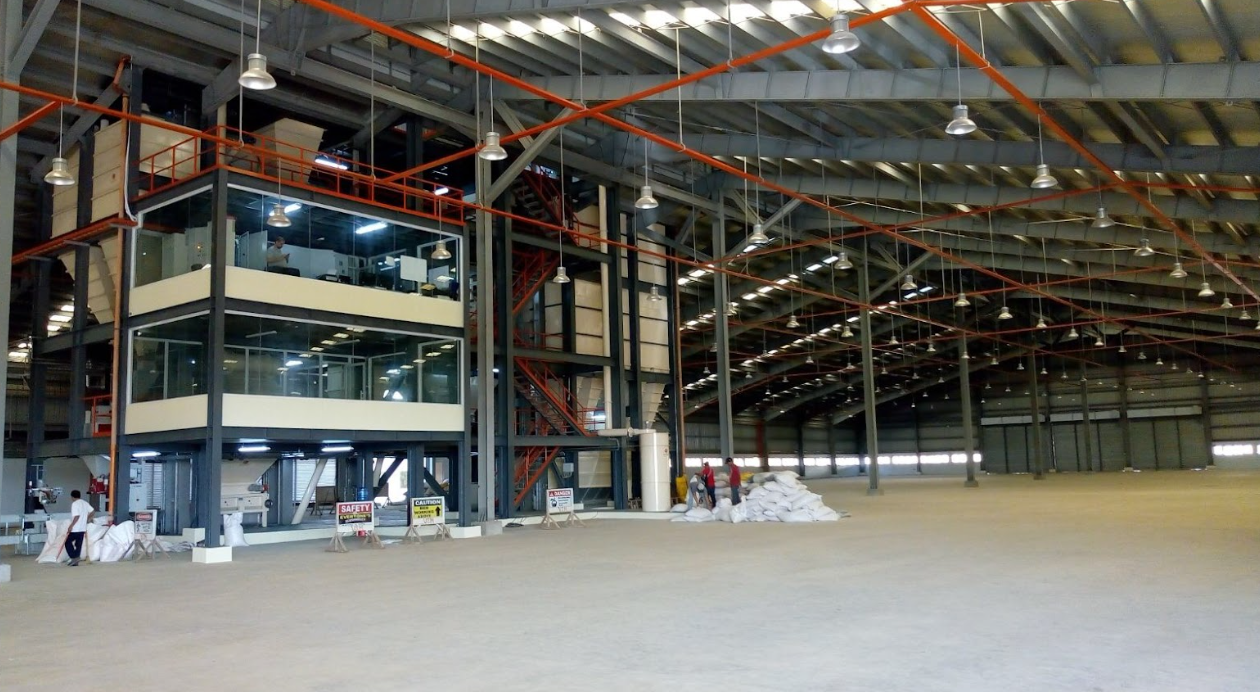Modular construction has been gaining traction in the feed mill industry as an innovative approach to project management and construction. This method involves prefabricating building components off-site, which are then transported and assembled on-site. The modular approach offers numerous advantages over traditional construction methods, making it an increasingly attractive option for feed mill projects.
In this article, we will explore the key advantages of using modular construction in feed mill projects, the safety initiatives that are crucial for this approach, and the role of modular construction in effective feed mill project management.
Advantages of Using Modular Construction in Feed Mill Projects
Reduced Construction Timeline
One of the primary benefits of modular construction for feed mills is the significant reduction in construction timelines. By prefabricating components off-site, the on-site assembly process is streamlined, allowing for faster project completion. This is particularly advantageous in the feed mill industry, where timely project delivery is crucial to meet production demands and maintain operational efficiency.
Improved Cost Efficiency
Modular construction can also lead to cost savings for feed mill projects. The off-site fabrication process allows for better control over materials, labor, and resource utilization, leading to reduced waste and more efficient use of resources. Additionally, the faster construction timeline translates to lower labor and overhead costs, further enhancing the cost-effectiveness of the modular approach.
Enhanced Quality Control
Prefabrication in a controlled, off-site environment enables stricter quality control measures. Components are manufactured and inspected in a factory setting, ensuring consistent quality and adherence to industry standards. This level of quality control is particularly important in the feed mill industry, where product safety and reliability are of the utmost importance.
Increased Flexibility
Modular construction offers greater flexibility in the design and layout of feed mills. The prefabricated components can be easily reconfigured or expanded to accommodate changing production needs or facility expansions. This adaptability allows feed mill operators to respond more effectively to evolving market demands and technological advancements.
Improved Site Logistics
Modular construction can also streamline the logistics of feed mill projects. With components prefabricated off-site, the on-site footprint is reduced, leading to more efficient use of available space and minimizing disruptions to ongoing operations. This is particularly beneficial for feed mills located in urban or constrained environments, where site access and space limitations can be a challenge.
Safety Initiatives in Modular Construction for Feed Mills
Ensuring workers’ safety and the feed mill facility’s integrity is paramount in any construction project. Modular construction for feed mills requires the implementation of comprehensive safety initiatives to mitigate risks and protect all stakeholders.
Rigorous Quality Assurance
The off-site fabrication process in modular construction allows for more rigorous quality assurance measures. Regular inspections, testing, and documentation ensure that all prefabricated components meet or exceed industry safety standards. This proactive approach helps to identify and address potential issues before they manifest on-site.
Specialized Training and Certification
Modular construction for feed mills requires specialized training and certification for both off-site fabrication personnel and on-site installation crews. Workers must be proficient in the handling, transportation, and assembly of prefabricated components to ensure the safety and structural integrity of the final product.
Comprehensive Safety Protocols
Comprehensive safety protocols, including personal protective equipment (PPE) requirements, hazard identification, and emergency response plans, are essential in modular construction for feed mills. These protocols must be tailored to the unique challenges and risks associated with the feed mill environment, such as dust management, equipment safety, and confined spaces.
Continuous Monitoring and Improvement
Ongoing monitoring and continuous improvement of safety practices are critical in modular construction for feed mills. Regular safety audits, incident reviews, and the implementation of corrective actions help to foster a culture of safety and ensure the long-term viability of the feed mill facility.
Feed Mill Project Management and the Role of Modular Construction
Effective project management is crucial for the successful delivery of feed mill projects, and modular construction can play a significant role in this process.
Streamlined Planning and Coordination
The modular approach to construction allows for more streamlined planning and coordination of feed mill projects. With off-site fabrication, the on-site construction activities can be more efficiently scheduled and sequenced, reducing the risk of delays and minimizing disruptions to ongoing operations.
Improved Risk Management
Modular construction for feed mills inherently reduces certain risks associated with traditional construction methods. Project managers can better identify and mitigate potential risks by addressing quality, safety, and logistical challenges in a controlled, off-site environment, leading to more successful project outcomes.
Enhanced Project Visibility and Control
Modular construction provides project managers with greater visibility and control over the feed mill project lifecycle. The off-site fabrication process allows for real-time monitoring of progress, quality, and resource utilization, enabling more informed decision-making and proactive risk mitigation.
Seamless Integration with Facility Operations
The modular approach to feed mill construction can facilitate a more seamless integration with ongoing facility operations. By minimizing on-site disruptions and enabling faster project completion, feed mill operators can maintain production continuity and ensure uninterrupted service to their customers.
Bottomline
Modular construction has emerged as a transformative approach to feed mill projects, offering a range of advantages that make it an increasingly attractive option for industry stakeholders. From reduced construction timelines and improved cost efficiency to enhanced quality control and increased flexibility, the modular approach demonstrates its value in addressing the unique challenges faced by feed mill operators.
To learn more about how modular construction can benefit your feed mill project, contact our team of experts today. We’ll provide a customized assessment and guide you through the process of implementing this innovative approach.

